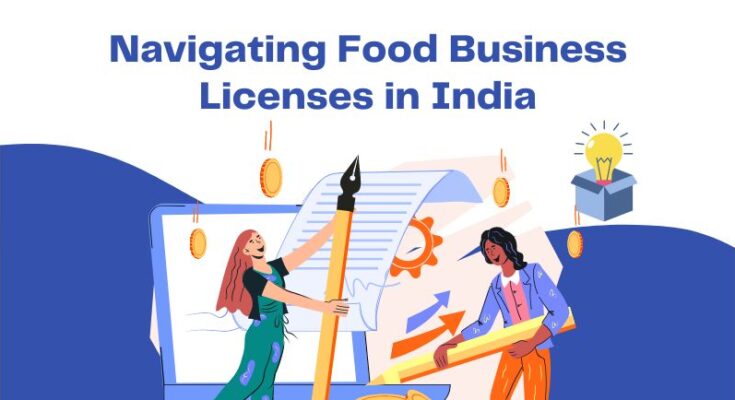Operating a food business in India requires obtaining several licenses and registrations to ensure compliance with food safety and hygiene standards. The specific licenses and registrations you need will depend on the scale and type of food business you are planning to establish. Here are some of the essential licenses and registrations applicable to food businesses in India:
FSSAI License: The Food Safety and Standards Authority of India (FSSAI) is the primary regulatory authority governing food safety in India. All food businesses, including manufacturers, processors, retailers, and distributors, are required to obtain an FSSAI license or registration. The type of license (Central or State) depends on the size and turnover of the food business.
Health / Trade License: Local municipal corporations issue health or trade licenses that are essential for operating any commercial establishment, including food businesses, within their jurisdiction.
GST Registration: Goods and Services Tax (GST) registration is mandatory for businesses with an annual turnover exceeding a specified threshold. Food businesses need to register for GST to comply with tax regulations.
Shop and Establishment Act License: This license is issued under the Shop and Establishment Act of the respective state and is required for businesses operating in certain categories, including food outlets.
Food Packaging and Labeling Compliance: Businesses need to ensure that their food products are appropriately labeled with information such as the name of the product, ingredients, nutritional information, manufacturing date, expiry date, etc.
Halal Certification (optional): If a food business wishes to cater to the Muslim population, obtaining a Halal certification ensures that the food products meet Islamic dietary requirements.
Organic Certification (optional): For businesses dealing in organic food products, obtaining organic certification from accredited agencies is beneficial for marketing purposes and to gain the trust of consumers.
NOC from Fire Department: For restaurants and large establishments, a No Objection Certificate (NOC) from the local fire department may be necessary to ensure fire safety compliance.
NOC from Pollution Control Board (if applicable): Large-scale food manufacturing units may require a NOC from the State Pollution Control Board to ensure environmental compliance.
Food Transport License: If you’re involved in transporting food products, you might need a specific transport license.
Food Safety Management System (FSMS): For large-scale food processing or manufacturing units, implementing FSMS based on Hazard Analysis and Critical Control Point (HACCP) principles may be necessary. Good Manufacturing Practices (GMP) also help to add credibility.
Lift and Elevator Certificate: If your food business is located on multiple floors, you may need to obtain a certificate for the lifts and elevators.
Other Specific Licenses: Depending on the nature of the food business, additional licenses may be required. For example, if the business involves the sale of alcohol, a separate liquor license is necessary.
It is essential to consult with local authorities or legal experts to determine the specific licenses and registrations required for your food business, as the regulations may vary between states and regions in India. Non-compliance with these licenses and registrations can lead to penalties and even the closure of the business, so it is crucial to ensure all legal requirements are met.
Business requires a lot more than just licenses. The success of a business depends on factors like strategy, operations, financial management, monitoring, evaluation, and a lot more. If you also feel so, start following MSME HelpDesk on social media platforms and start attending events and sessions organized by MSME HelpDesk


